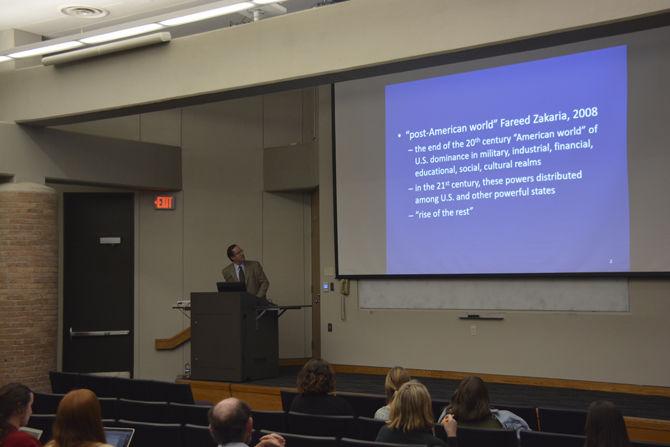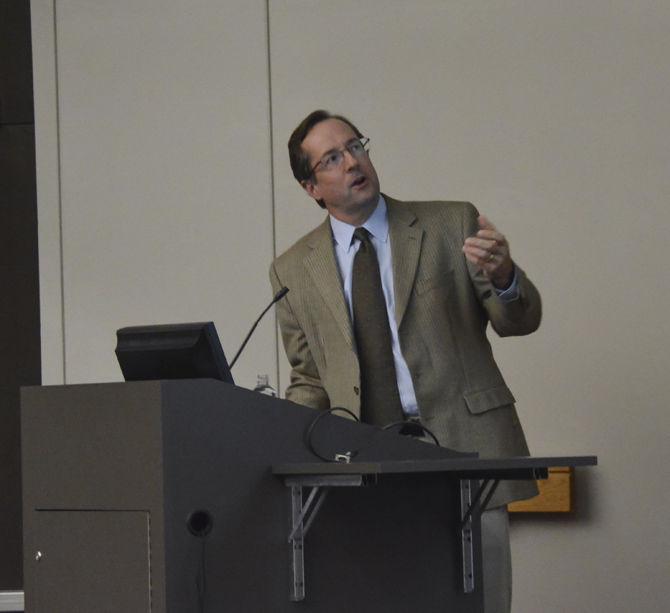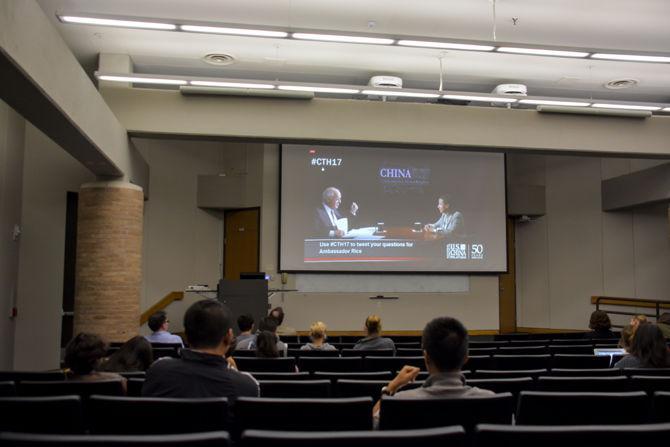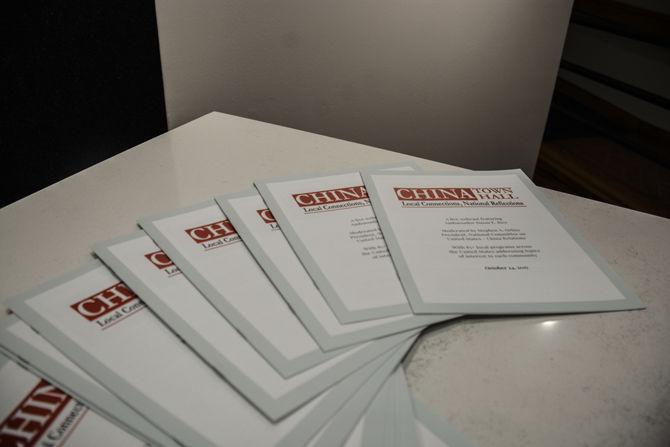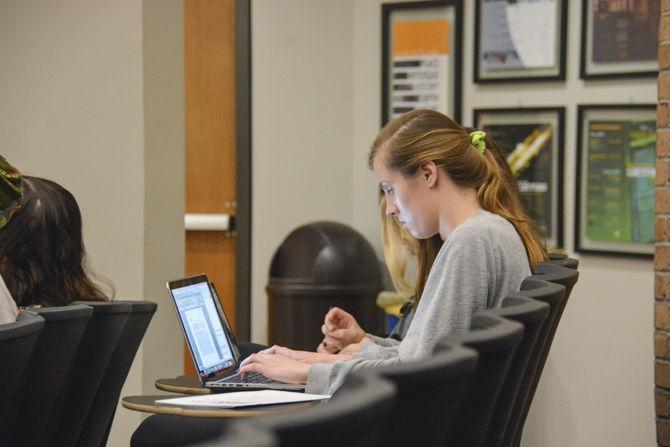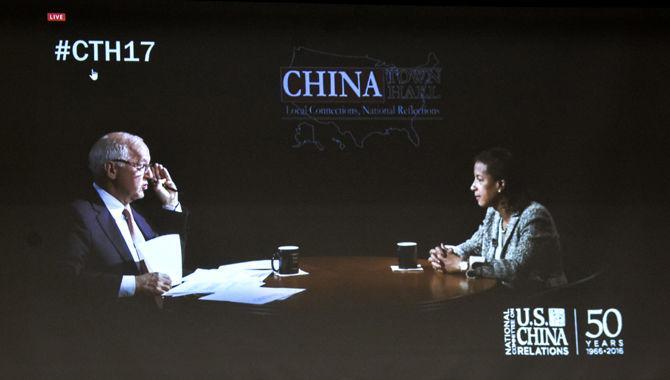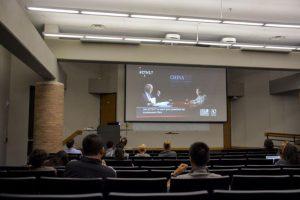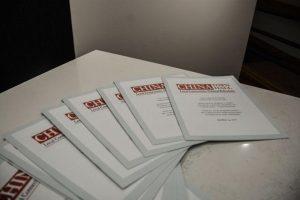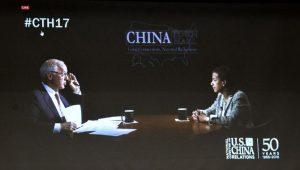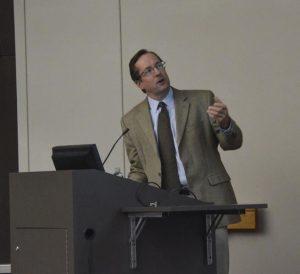Former National Security Adviser Susan Rice addressed a wide variety of current issues between the U.S. and China via webcast in the LSU Design Building on Tuesday during an event hosted by the International Studies and Asian Studies programs.
Rice reflected on U.S.-China relations during her time as the National Security Adviser during former President Barack Obama’s administration and shared her thoughts about President Donald Trump’s administration.
Rice said the Obama administration viewed the U.S.-China relationship as the most complicated, complex, but also consequential relationship in the world. The challenge is to try to maximize cooperation while managing the elements of competition between the countries.
The Obama administration invested heavily in this relationship and achieved cooperation on many issues including nuclear security, climate change, disease prevention and counter-terrorism, Rice said.
“What was most gratifying was to see that we could move beyond the traditional topics of dialogue between the U.S. and China and get into concrete areas where we could make tangible progress benefitting the people of the U.S., China and in many instances the world,” Rice said.
When meeting with China, Rice said it is necessary to prepare a substantial list of concrete demands to advance U.S. interests and to not settle.
“A meeting was successful if we moved the needle on both sides,” Rice said.
Rice said Trump should look for areas where the U.S. can expand cooperation, not just points of friction in his upcoming visit to China next month.
“For example, on the economic side of the relationship, I think we’ve set ourselves up for potential failure by raising the bar so high with the president’s rhetoric on trade,” Rice said. “The reality is we have a mutually interdependent economic relationship where there are issues that are very frustrating to the U.S. side, but we can’t make empty threats that we may not be willing to back up.”
While numbers have declined, intellectual property theft continues to be one of the areas that causes the greatest friction between the two countries, Rice said. Altogether, intellectual-property theft costs America up to $600 billion a year, the greatest transfer of wealth in history. China accounts for most of that loss, according to the New York Times.
Chinese government entities and companies are actively stealing U.S. intellectual property through cyber means to advance their own commercial interests. These instances have been “building to a point of real combustion,” Rice said.
In 2015, they reached a negotiation that has substantially reduced these instances, Rice said.
“We needn’t fear nor thwart China’s peaceful rise,” Rice said. “A powerful China could be beneficial to the U.S. given its large market and could play a larger and more meaningful role on the global stage.”


